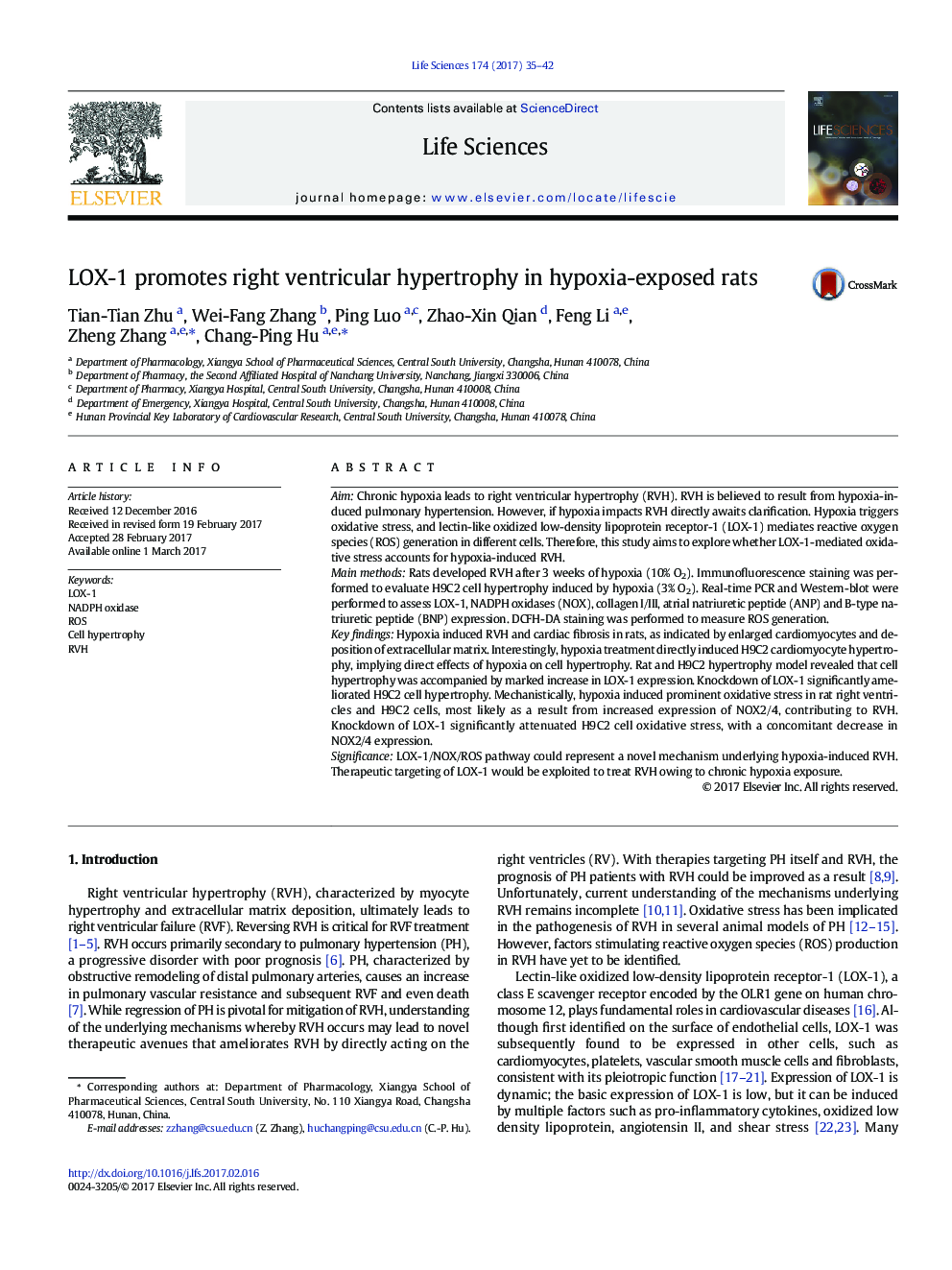| کد مقاله | کد نشریه | سال انتشار | مقاله انگلیسی | نسخه تمام متن |
|---|---|---|---|---|
| 5556980 | 1560554 | 2017 | 8 صفحه PDF | دانلود رایگان |

AimChronic hypoxia leads to right ventricular hypertrophy (RVH). RVH is believed to result from hypoxia-induced pulmonary hypertension. However, if hypoxia impacts RVH directly awaits clarification. Hypoxia triggers oxidative stress, and lectin-like oxidized low-density lipoprotein receptor-1 (LOX-1) mediates reactive oxygen species (ROS) generation in different cells. Therefore, this study aims to explore whether LOX-1-mediated oxidative stress accounts for hypoxia-induced RVH.Main methodsRats developed RVH after 3Â weeks of hypoxia (10% O2). Immunofluorescence staining was performed to evaluate H9C2 cell hypertrophy induced by hypoxia (3% O2). Real-time PCR and Western-blot were performed to assess LOX-1, NADPH oxidases (NOX), collagen I/III, atrial natriuretic peptide (ANP) and B-type natriuretic peptide (BNP) expression. DCFH-DA staining was performed to measure ROS generation.Key findingsHypoxia induced RVH and cardiac fibrosis in rats, as indicated by enlarged cardiomyocytes and deposition of extracellular matrix. Interestingly, hypoxia treatment directly induced H9C2 cardiomyocyte hypertrophy, implying direct effects of hypoxia on cell hypertrophy. Rat and H9C2 hypertrophy model revealed that cell hypertrophy was accompanied by marked increase in LOX-1 expression. Knockdown of LOX-1 significantly ameliorated H9C2 cell hypertrophy. Mechanistically, hypoxia induced prominent oxidative stress in rat right ventricles and H9C2 cells, most likely as a result from increased expression of NOX2/4, contributing to RVH. Knockdown of LOX-1 significantly attenuated H9C2 cell oxidative stress, with a concomitant decrease in NOX2/4 expression.SignificanceLOX-1/NOX/ROS pathway could represent a novel mechanism underlying hypoxia-induced RVH. Therapeutic targeting of LOX-1 would be exploited to treat RVH owing to chronic hypoxia exposure.
Journal: Life Sciences - Volume 174, 1 April 2017, Pages 35-42